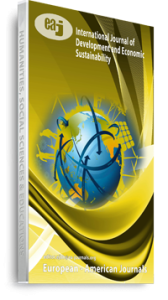Government at different times had implemented policies and programs to trigger the performance of the solid mineral sub-sector in Nigeria positively yet it contribution to the GDP remains dismal. Hence, the study focused on the impact of trade openness on the growth of solid mineral Sub-sector in Nigeria from 1981 to 2020. The study employed Auto Regressive Distributed Lag (ARDL) as the modeling technique. Solid mineral subsector (SLM) was used as the dependent variable while Trade openness (TPN), Foreign direct investment (FDI), Foreign portfolio investment (PFI), Remittances (RMT) constituted the independent variables. Exchange rate (EXR) was used as check variable. The study found that TPN, FPI, RMT and EXR negatively influenced the solid mineral sub-sector. FDI maintained a positive relationship with SLM. Based on these findings, the paper recommended that government should extend the tax exemption period for companies exploiting solid minerals beyond the existing three years to attract foreign investors into the sub-sector. Also, government should adequately regulate the mining sub-sector to attract portfolio investment and foreign remittances into the sector.
Keywords: Growth, Solid Mineral., trade openness

